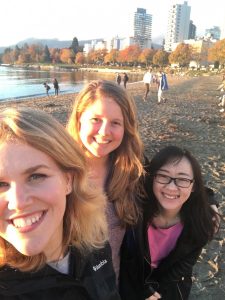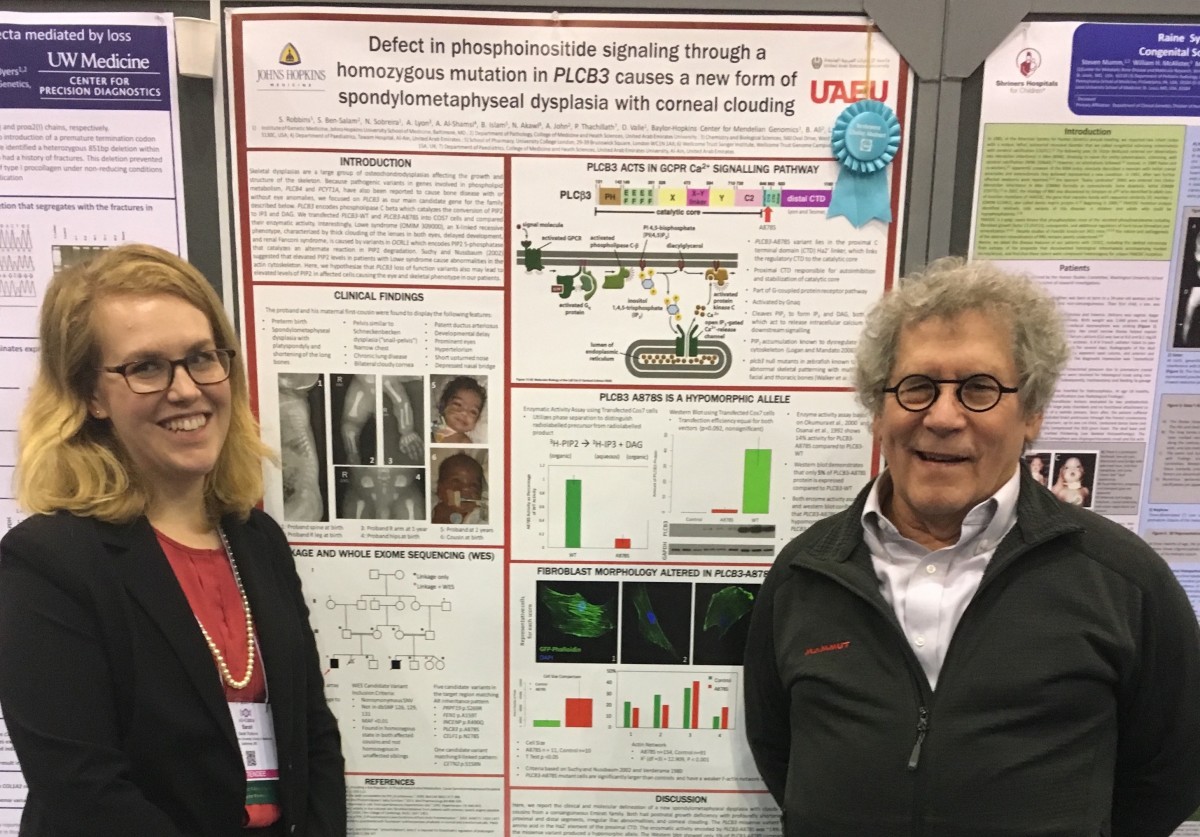Academic conferences are an integral part of a graduate student’s training. They are not only a window into the life of a professor but also help you to connect with colleagues across the globe. Even better, you get to spend time outside of the lab with your lab mates while still learning new things about your field.
As a second-year graduate student in the human genetics program, I had just settled into my thesis lab after my rotations when my lab mates and I started to prepare for the American Society of Human Genetics (ASHG) conference. Luckily, that year the meeting took place in Baltimore, so everyone in the lab, including me, was able to go. I remember wondering what I would need to do to prepare and how I would even start. Here are a few tips I wish I had known before my first academic conference.
- First of all, before anything else, ask to attend! You can talk to your thesis adviser or lab mates, or search the internet to find a conference that is relevant to your field. Most conferences have a website with a list of scheduled talks that you can look at to identify any sessions that would be helpful to your research. You might need to search for additional funding to help supplement your costs, however, if your lab can’t afford to send you. Luckily, for graduate students in the school of medicine, the Graduate Student Association offers travels grants every three months to help students pay to attend conferences. Once you’ve outlined the benefits of attending and have found ways to offset the costs, your professor might be very eager to send you.
- Prepare a poster or talk to share your work with the scientific community. Not only did making a poster allow me to share my work with other scientists, but I also received a lot of great tips from other researchers that I met while presenting posters at conferences. This specific feedback has helped me to optimize and refine several experiments before sending that work in for publication.
- Attend as many lectures as you can, but make sure to leave time for checking out the exhibit halls. The talks are the bulk of the conference, where most of the cutting-edge research is being presented. However, the exhibit halls are also great sources of knowledge! Usually, you can find a poster that is relevant to your work or an exhibiting biotech company with a new product that might be helpful. If not, you can always grab a free shirt or chat with other graduate students, postdocs and professionals about their science.
 Dress professionally. Even though you might wear jeans and a T-shirt to lab every day, at a professional conference you should dress as if you’re going to meet your next supervisor. Chances are good that you might! Conferences are a great place to network, and you want to leave a good impression. You may even find a lab to postdoc in or a company to work for!
Dress professionally. Even though you might wear jeans and a T-shirt to lab every day, at a professional conference you should dress as if you’re going to meet your next supervisor. Chances are good that you might! Conferences are a great place to network, and you want to leave a good impression. You may even find a lab to postdoc in or a company to work for!
- Explore! You may be in a different city to attend this conference so you should make the most of it! Leave some time to have fun and sample some of the local cuisine. When I attended ASHG last year in Vancouver, my lab mates and I checked out a local beach one evening after our day of lectures.
Good luck preparing for your next conference!

Great advice to motivate and inform. I also recommend planning your day in advance after studying the meeting program. What was the rare bone disorder?
Dr. Sponseller,
Yes, I agree! Planning in advance ensures that you don't miss any lectures you really wanted to attend and that you can maximize your time at the conference. The rare bone disorder we have been working on is a new form of spondylometaphyseal dysplasia with cloudy cornea and intellectual disability; our report is currently under review.
Dear Sarah,
I'm a journalist interested in your 2016 paper on language access and health equity. Could you drop me an email? Thanks--
Best,
Michael Erard
Comments are closed.